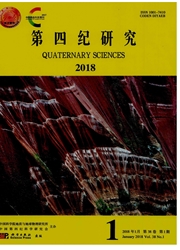

 中文摘要:
中文摘要:
缓慢的矿物溶解速率以及溶解介质难以回收一直是影响CO2矿物封存发展的两个难点。本文提出了一种新的以可循环的氯化铵溶液作为中间媒介的CO2矿物封存工艺。在此基础上,选取水镁石作为富镁硅酸盐矿物的代表,系统地研究了水镁石在氯化铵溶液中的流-固两相的反应动力学。结果表明该溶解反应符合Avrami经验模型。反应速率随反应温度、氯化铵溶液浓度的增加而增大,随固液比值、矿石粒径的增加而减小。该反应表观活化能为47.47kJ/mol,表明反应主要受表面化学反应控制。
 英文摘要:
英文摘要:
Increasing evidence suggests that the widespread use of fossil fuels has led to a rapid increase in carbon dioxide concentration in the atmosphere. This phenomenon may trigger unstoppable climate change. One method to prevent CO2 in the atmosphere from rising to unacceptable levels is carbon dioxide sequestration,which can progress through various proposed technologies. Compared to other techniques, mineral CO2 sequestration has some fundamental advantages. For example, the process produces thermodynamically stable mineral carbonates. Moreover,since carbonation reactions are exothermic and occur spontaneously in nature,they can facilitate CO2 disposal processes that are net energy producers with high potential for economic viability. Existing literature surveys reaction kinetics between different kinds of materials, such as serpentine, olivine, talc,wollastonite,brucite, and CO: in different routings. Findings show that the main obstacle of the carbonation process is the slow mineral dissolution rate. In order to obtain an industrially viable process, studies have investigated an indirect aqueous carbonation process that involves, enhancing both the extraction of divalent ions and the precipitation of carbonates. During the pH-swing process, however, the use of unrecyclable leaching agents presents a major barrier for the development of CO2 mineral carbonation. This paper presents a new indirect aqueous carbonation process,which instead adopts NH4Cl solution as the leaching agent. The acidic environment caused by NH4^+ hydrolysis can favor mineral dissolution and release NH3, which will be collected as a base for pH adjustment during the carbonate process. Recyclable use of the leaching agent lowers the total cost and increases the commercial potential of the process. Although both calcium and magnesium ions are suitable for CO2 carbonation, we consider the magnesium silicate mineral ideal for CO2 carbonation. First,only a small amount of calcium is found in wollastonite and silicate minerals. Second, the m
 同期刊论文项目
同期刊论文项目
 同项目期刊论文
同项目期刊论文
 期刊信息
期刊信息
